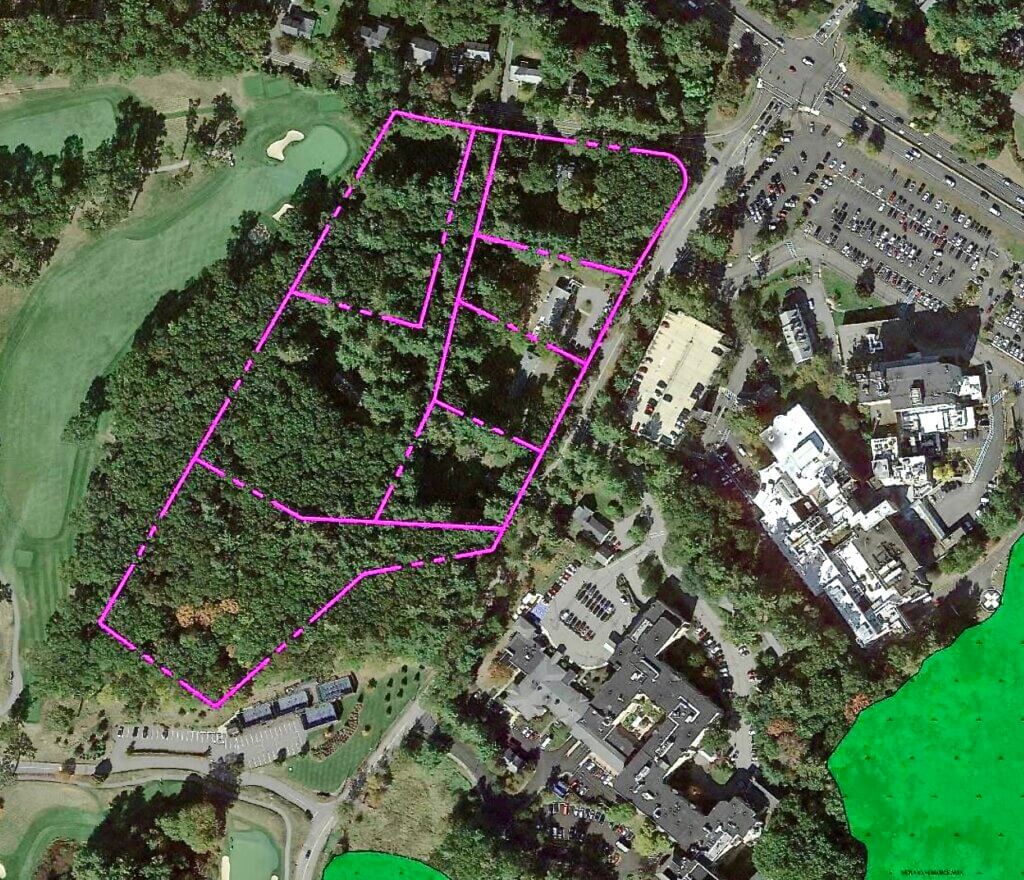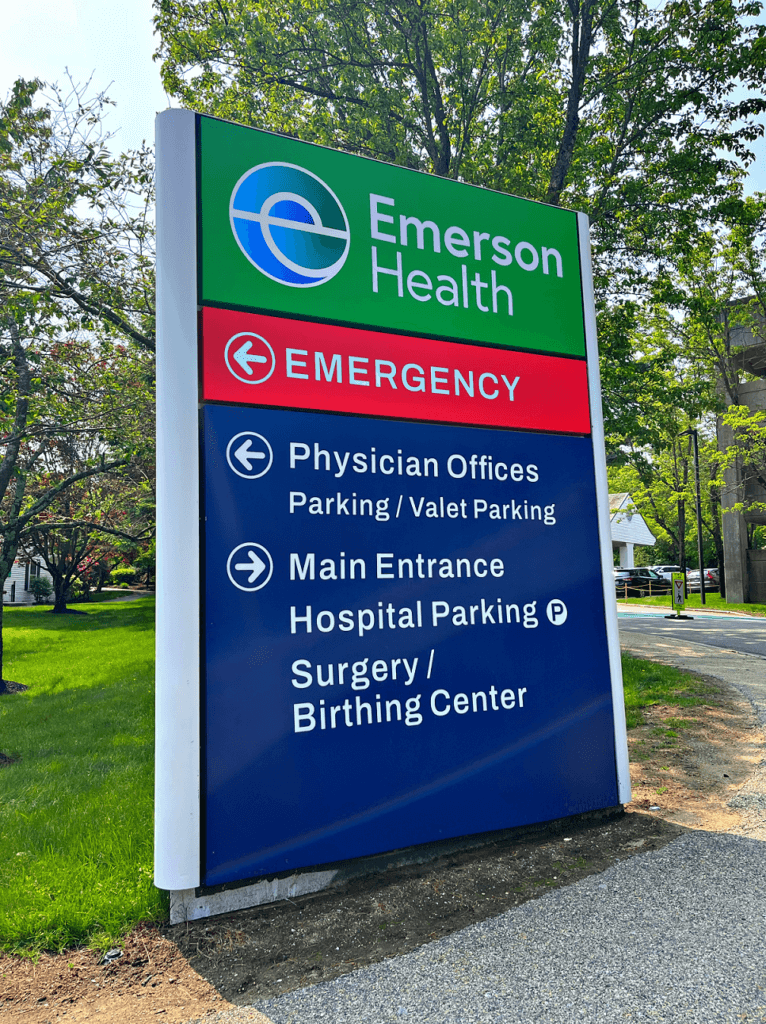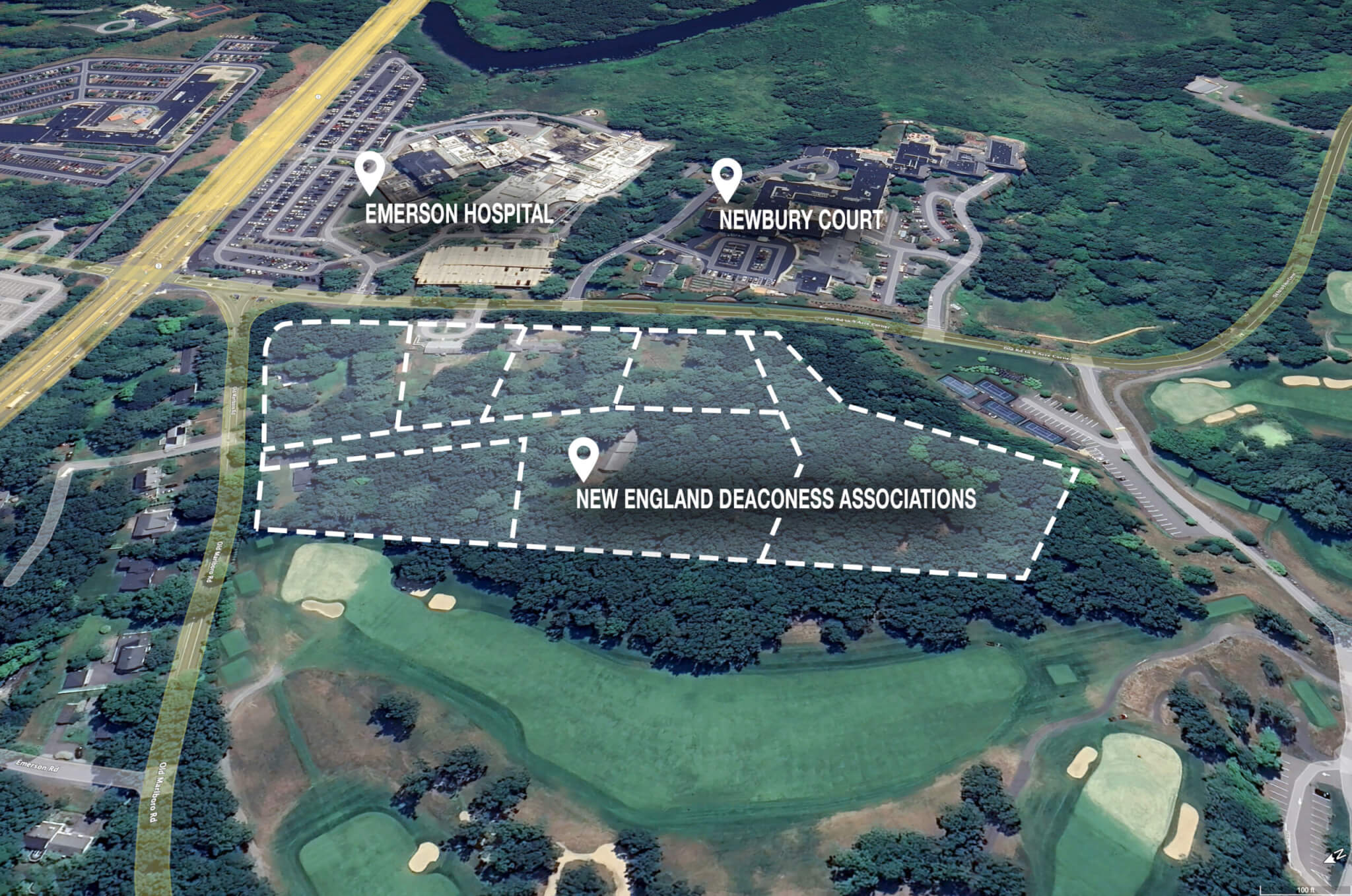By Erin Tiernan — Erin@concordbridge.org
More senior housing is being planned by the non-profit that runs Newbury Court, and the CEO says Concordians will get a chance to weigh in on what the organization’s next retirement community looks like.
New England Deaconess Associations in August bought a swath of land off Old Road to 9 Acre Corner in an $18 million deal with Emerson Health. The organization said it plans to redevelop it into a community for older Concordians.
Deputy Town Manager Megan Zammuto confirmed the town’s Planning Division staff “has had conversations with New England Deaconess regarding the options available as they consider future uses.”
Deaconess CEO Chris Sintros told The Concord Bridge that the planned rezoning of the land “will be a very public process that includes many constituencies and departments in town.”
Newbury Court is across the street from the land New England Deaconess Associations recently purchased. The community, also owned by Deaconess, has a 110-year history of providing residential care services for Concord’s older residents. It’s a legacy Sintros said he wants to expand while meeting the needs of Massachusetts’ growing senior population.

Senior population grows
More and more baby boomers have reached retirement age, with more than 1.2 million Bay Staters 65 or older in 2020, census data shows — up more than one-third from a decade earlier.
Similar trends are at play in Concord, where 22 percent of Concordians are 65 or older, up from 16 percent a decade ago, Census data show.
“We recognize the need for additional high-quality senior living in our community and plan to use this opportunity to meet this need,” Sintros said. “Quality growth is always a challenge and one that is worth the effort on behalf of the older adults who have been leaders in our community for so many years.”
Newbury Court currently hosts 340 residents in “various stages of living.” That includes independent and assisted living, nursing home care, and memory-support care, Sintros said.
The affordability challenge
Housing affordability will be one of the big challenges surrounding development on the Deaconess land, as well as a growing list of other parcels being considered for new uses. Among those: The now-shuttered MCI-Concord, the Peabody school building, and the Superfund site undergoing cleanup at 2229 Main Street.
Sintros has made no public promises about the affordability of the residences to come, but requirements can be outlined in the town planning and zoning process once Deaconess moves forward with its plans.
The need for housing — especially affordable housing — for aging adults far outpaces what’s available, an Emerson Health Community Health Needs Assessment has repeatedly revealed, according to a statement from the organization.

‘Best possible use’
Affordability for older Concordians was a factor in Emerson’s decision to sell the land, according to a statement from hospital leadership.
“Access to affordable housing is a pressing need in the Concord community, especially for senior citizens,” Emerson Health CEO and President Christine Schuster said.
“Working with our neighbor and valued partner, New England Deaconess Association, we realized that the best possible use for this land was to increase access to senior housing in Concord, close to the hospital,” Schuster said.
There is a pressing need for more affordable housing for older residents throughout Massachusetts, a recent UMass Boston study shows: Roughly 57% of older singles and 26 percent of couples — an estimated 300,000 Bay Staters 65 and older — live with incomes below what it takes to cover essentials.
‘Right partner,’ right time
The land deal with Emerson came at the end of a national search for interested buyers.
Schuster emphasized that “the land sale was not connected to a financial need for funds; it was the result of finding the right partner at the right time to use the unoccupied property to meet a growing community need.”
Publicly available financial data backs that up.
The health care industry as a whole — and independent health systems like Emerson — have faced spiraling costs coming out of the coronavirus pandemic.
A review of recent publicly available financial data shows Emerson had operated on narrow but still profitable margins for years before 2020, when the health system saw operating losses of 6.6 percent.
Emerson has since returned to profitability, reporting positive total margins of 1.3 percent in 2022, the latest year for which data is available. It was one of just two of the state’s 13 independent health systems to report positive total margins that year, according to the state Center for Health Information and Analysis.
Emerson still owns a dozen properties in Concord — including the land on which the hospital sits.






